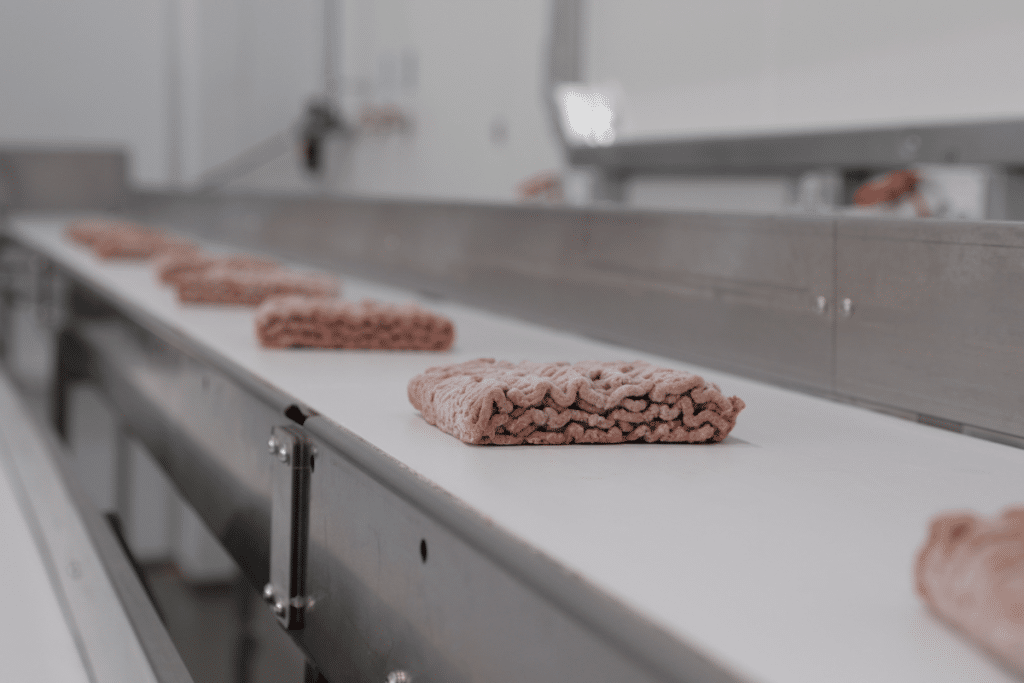Innovative Investments: The Gulf’s Strategic Shift Towards Plant-Based and Cellular Agriculture
In recent years, the Gulf region has witnessed a remarkable shift towards plant-based and cellular agriculture, evolving from a niche lifestyle choice to a lucrative, state-supported industry. This transformation is driven by significant investments from sovereign wealth funds and influential figures in the region.
In March 2021, the Qatar Investment Authority (QIA), the state’s sovereign wealth fund, led a $200 million investment in Eat Just, a California-based plant-based food company. Later that year, Eat Just secured a deal to establish a production facility in Umm al-Houl, a special economic zone designated by the Qatari government in 2019. The QIA’s $450 billion portfolio includes stakes in Volkswagen Group, Sainsbury’s, and Paris Saint-Germain. Despite the seemingly odd interest in a company known for its liquid vegan “eggs,” Eat Just is more than a food company. Based in Silicon Valley, it operates at the intersection of food and biotechnology. The Umm al-Houl facility will produce “cultivated meat,” growing chicken meat from cell cultures without slaughtering animals. For Qatar, investing in plant-based foods represents a strategic move into the promising field of agricultural technology and a forward-looking investment in the future of food.
Saudi prince Khaled bin Al-Waleed Al-Saud, a prominent investor in plant-based foods in the Gulf, has established a significant presence in the industry since adopting a vegan lifestyle in 2017.
Through his company, KBW Ventures, he has invested in various ventures, including Veggie Grill, Beyond Meat, and PlantBasedNews.
Saudi prince Khaled bin Al-Waleed Al-Saud
Collaborating with American celebrity chef Matthew Kenney, Khaled has opened several vegan restaurants in Bahrain, Doha, Dubai, Kuwait, and Riyadh, all located in Four Seasons hotels, which are partly owned by his father, Prince Al-Waleed. Khaled’s focus, similar to the Qatar Investment Authority, is on “cell-ag,” or meat produced from cellular cultures. KBW Ventures has invested in companies that produce cell-grown chicken, seafood, and pet food that is “brewed, not farmed.” Unlike companies like Beyond Meat that use plant ingredients to mimic meat, these companies use advanced science to create real animal tissue from cell cultures. This type of meat is considered “vegan” because it does not involve slaughter, but it is not “plant-based.”
Prince Khaled views “cell-ag” as the future of food.
In 2020, Khaled explained to CNBC that the animal-agriculture industry is one of the most impactful sectors and emphasized the need for better protein sources. With over 50 million people in the Middle East and North Africa facing undernourishment, and food insecurity expected to worsen due to climate change, desertification, and population growth, alternative meats could address this issue. The prince believes that cellular agriculture facilities, such as the one in Umm al-Houl, will eventually surpass and replace industrial livestock production. He predicts that lab-grown meat will become more ecologically and economically viable, despite potential consumer resistance to its artificial nature.
Cellular agriculture facility
The Gulf countries’ investment in vegan products brings up practical and ethical issues. Although there are locally made vegan products, QIA and KBW Ventures often invest in Californian biotech companies whose products are not widely available in the Middle East and North Africa. While access is improving, vegan products remain costly and impractical, especially outside the wealthy Gulf nations. Additionally, vegan meat products, whether plant-based or lab-grown, raise questions about kosher and halal dietary guidelines. Some view these investments by Qatar and Saudi Arabia as “greenwashing” to distract from their extensive oil production and human rights abuses. For example, NEOM, a smart city project by Saudi Crown Prince Mohammed bin Salman, aims to promote alternative proteins for healthier and more sustainable eating habits. However, the project has faced criticism for displacing and executing members of the local Howeitat tribe.
Plant-based meat production at IFFCO’s new factory in Dubai
The Gulf’s investment in vegan products represents a forward-thinking approach to addressing some of the most pressing global challenges, including climate change, food security, and sustainable agriculture. While there are practical and ethical considerations to navigate, such as the accessibility and cost of vegan products and adherence to dietary guidelines, the region’s commitment to advancing plant-based and cellular agriculture is undeniable. As these initiatives continue to develop, they have the potential to not only transform the food industry in the Gulf but also set a precedent for sustainable food production worldwide. The collaboration between state-supported entities and private investors underscores a shared vision for a more sustainable and ethical future, positioning the Gulf as a leader in the global movement towards innovative and compassionate food solutions.




